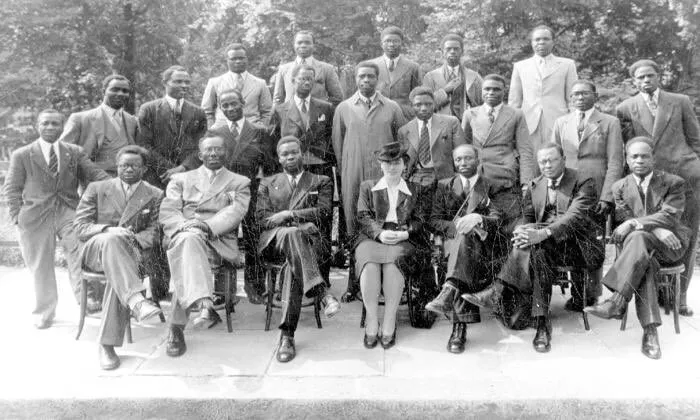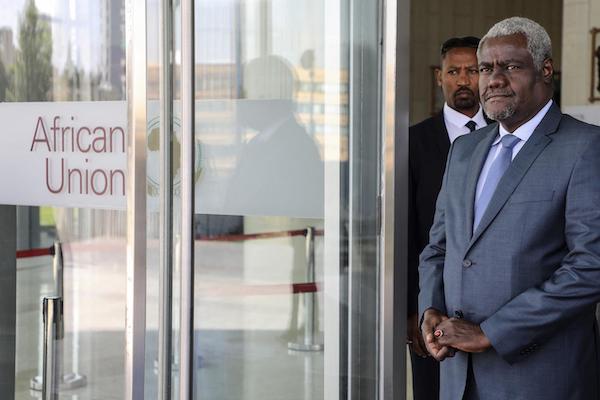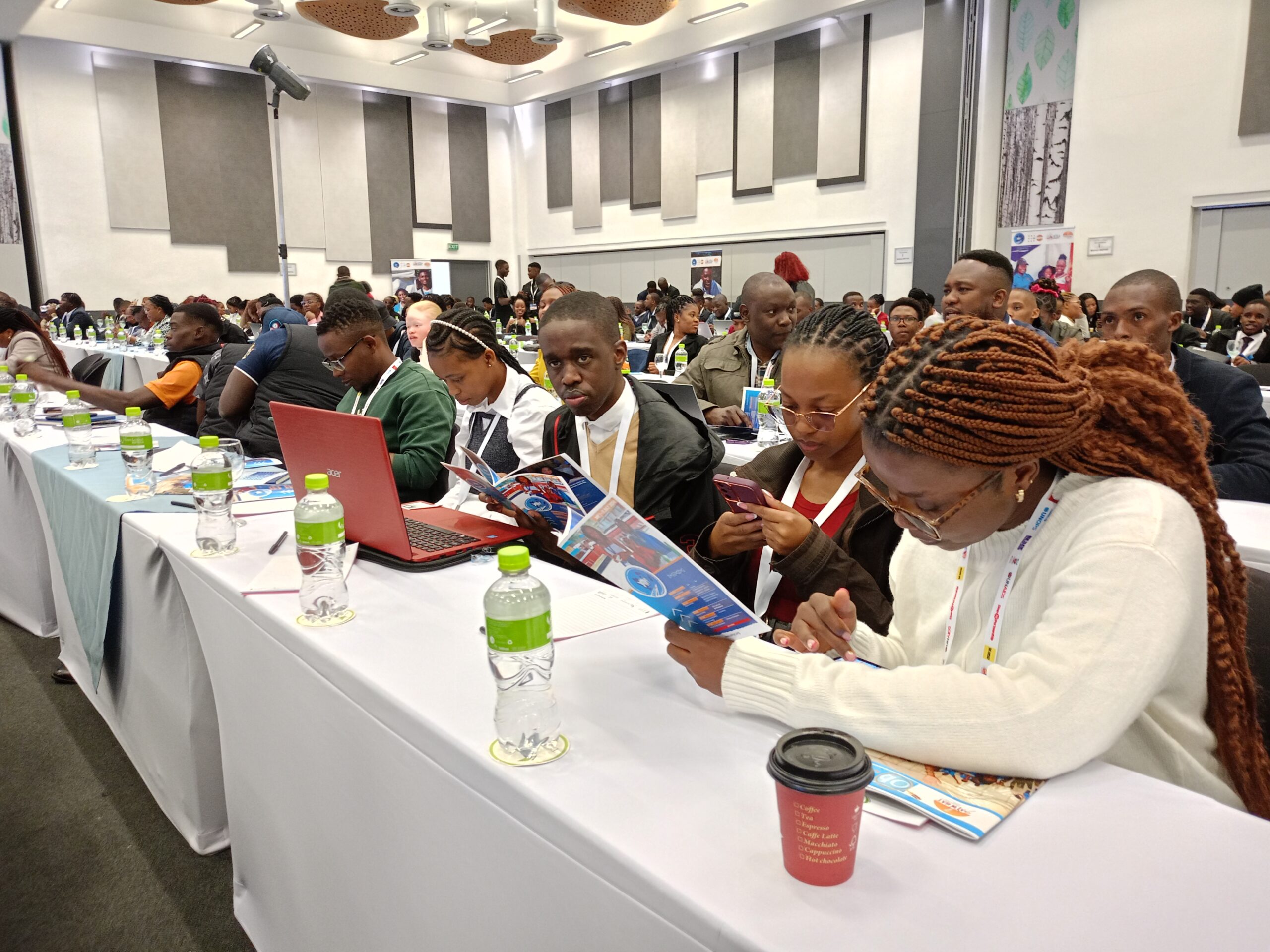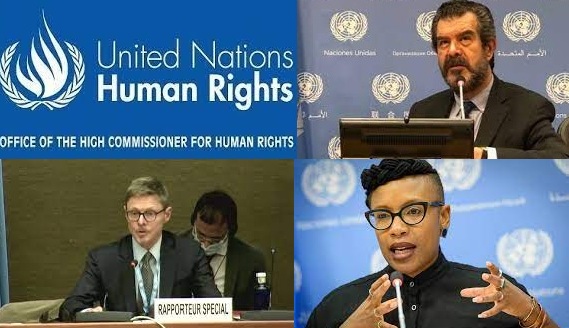
Delegates-of-the-5th-Pan-African-Congress-Manchester-1945-Pic-Working-Class-Movement-Library.webp
The Pan Afrikanist
As we celebrate the 60th Anniversary of the founding of the Organisation of African Unity (OAU) – the precursor of the African Union (AU) on May 25th 2023, let us consider some of Africa’s flagship projects that will eventually bring about the realisation of a completely united Africa.
A united Africa is the culmination of a painstaking project – a labour of love – a throwback to a peaceful epoch predating slavery, colonialism and neo-colonialism –a time when Blacks lived in peaceful coexistence before their development was brutally arrested.

Our great forebears – the torchbearers that shone the light far away from the mother continent in the Western Hemisphere, our heroes whose voices refused to grow hoarse in their tireless demand for self-determination of the Black people – among these we count the Trinidadian barrister, Henry Sylvester Williams; the Jamaican Marcus Mosiah Garvey; the erudite scholar, William Edward Burghandt Du Bois.
We also recall the efforts of the pathfinders that led the way for a later generation that relocated the Pan African Movement from the Diaspora to the Mother continent among them African and Caribbean radical luminaries such as Amy Ashwood Garvey, C.L.R. James and Jomo Kenyatta, the Trinidadian Marxist, George Padmore, who, alongside Peter Abrahams, Ras Makonnen, Peter Milliard and Kwame Nkrumah, organised the 1945 Manchester Pan-African Congress.
Here are some of the African Union’s flagship projects as espoused by the Agenda 2063. They refer to key programmes and initiatives which have been identified as key to accelerating Africa’s economic growth and development as well as promoting our common identity by celebrating our history and our vibrant culture.
The Flagship projects encompass amongst others infrastructure, education, science, technology, arts and culture as well as initiatives to secure peace on the continent.

The project aims to connect all African capitals and commercial centres through an African High Speed Train Network thereby facilitating the movement of goods, factor services and people. The increased connectivity by rail also aims to reduce transport costs and relieve congestion of current and future systems.

The development of a continental commodities strategy is seen as key to enabling African countries to add value, extract higher rents from their commodities, integrate into the Global Value chains, and promote vertical and horizontal diversification anchored in value addition and local content development. The strategy aims to transform Africa from simply being a raw materials supplier for the rest of the world to a continent that actively uses its own resources to ensure the economic development of Africans

Accelerate intra-African trade and boost Africa’s trading position in the global market place. The AfCFTA aims to significantly accelerate growth of Intra-Africa trade and use trade more effectively as an engine of growth and sustainable development by doubling intra-Africa trade, strengthening Africa’s common voice and policy space in global trade negotiations

Remove restrictions on Africans ability to travel, work and live within their own continent. The initiative aims at transforming Africa’s laws, which remain generally restrictive on movement of people despite political commitments to bring down borders with the view to promoting the issuance of visas by Member States to enhance free movement of all African citizens in all African countries.

To achieve the goals of Agenda 2063, Africa needs to work towards ending all wars, civil conflicts, gender-based violence, violent conflicts and preventing genocide. In addition progress in the areas are to be monitored through the establishment and operationalisation of an African Human Security Index (AHSI)

The development of the Inga Dam is expected to generate 43,200 MW of power, to support current regional power pools and their combined service to transform Africa from traditional to modern sources of energy and ensure access of all Africans to clean and affordable electricity.

The SAATM aims to ensure intra-regional connectivity between the capital cities of Africa and create a single unified air transport market in Africa, as an impetus to the continent’s economic integration and growth agenda. SAATM provides for the full liberalisation of intra-African air transport services in terms of market access, traffic rights for scheduled and freight air services by eligible airlines thereby improving air services connectivity and air carrier efficiencies. It removes restrictions on ownership and provides for the full liberalisation of frequencies, tariffs and capacity. It also provides eligibility criteria for African community carriers, safety and security standards, mechanisms for fair competition and dispute settlement as well as consumer protection.

The annual African Economic Forum, is a multi-stakeholder meeting that brings together the African political leadership, the private sector, academia and civil society to reflect on how to accelerate Africa’s economic transformation harnessing its vast resources to enhance the development of the African people. The forum discusses key opportunities as well as the constraints that hamper economic development and proposes measures to be taken to realise the Aspirations and goals of Agenda 2063.

The creation of African Continental Financial Institutions aims at accelerating integration and socio-economic development of the continent through the establishment of organisations which will play a pivotal role in the mobilization of resources and management of the African financial sector. The financial institutions envisaged to promote economic integration are the African Investment Bank and Pan African Stock Exchange; the African Monetary Fund and the African Central Bank.

The Africa outer space strategy aims to strengthen Africa’s use of outer space to bolster its development. Outer space is of critical importance to the development of Africa in all fields: agriculture, disaster management, remote sensing, climate forecast, banking and finance, as well as defence and security. Africa’s access to space technology products is no longer a matter of luxury and there is a need to speed up access to these technologies and products. New developments in satellite technologies make these accessible to African countries and appropriate policies and strategies are required to develop a regional market for space products in Africa.

This project aims to use ICT based programmes to increase access to tertiary and continuing education in Africa by reaching large numbers of students and professionals in multiple sites simultaneously. It aims to develop relevant and high quality Open, Distance and eLearning (ODeL) resources to offer students guaranteed access to the University from anywhere in the world and anytime (24 hours a day, 7 days a week.

The decision to adopt Cyber Security as a flagship programme of Agenda 2063 is a clear indication that Africa needs to not only incorporate in its development plans the rapid changes brought about by emerging technologies, but also to ensure that these technologies are used for the benefit of African individuals, institutions or nation states by ensuring data protection and safety online. The Cyber Security project is guided by the African Union Convention on Cyber Security and Personal Data Protection

The African Charter for African Cultural Renaissance recognises the important role that culture pays in mobilising and unifying people around common ideals and promoting African culture to build the ideals of Pan-Africanism. The Great African Museum project aims to create awareness about Africa’s vast, dynamic and diverse cultural artefacts and the influence Africa has had and continues to have on the various cultures of the world in areas such as art, music, language, science, and so on. The Great African Museum will be a focal centre for preserving and promoting the African cultural heritage.
- Encyclopaedia Africana
The Encyclopaedia Africana aims to provide an authoritative resource on the authentic history of Africa and African life. The Encyclopaedia provides Africans a body of truth to guide and unite them in their development with foundations in all aspect of the African life including history, legal, economic, religion, architecture and education as well as the systems and practices of African societies.
The Encyclopaedia Africana provides an African worldview of the people, culture, literature and history of Africa and is a key tool to be used to educate, inform and set the records straight regarding the history, culture and contributions of African people throughout the world.
(C) AU Website
Find out more about our projects aimed at promoting and celebrating Africa’s contribution and the contribution of African’s to the world both within Africa and in the Diaspora by visiting CIDO








